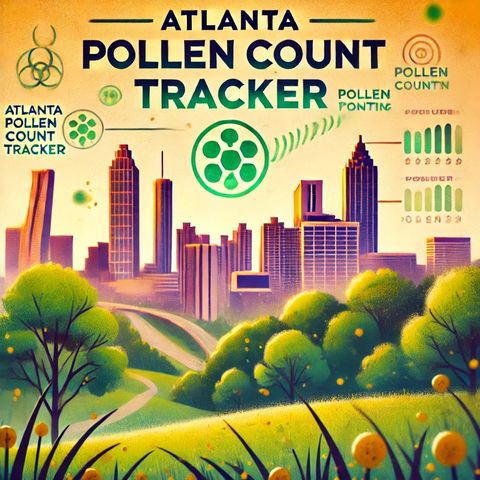Pollen Count for Atlanta, GA on 11-05-2024

Regístrate gratis
Escucha este episodio y muchos más. ¡Disfruta de los mejores podcasts en Spreaker!
Descarga y escucha en cualquier lugar
Descarga tus episodios favoritos y disfrútalos, ¡dondequiera que estés! Regístrate o inicia sesión ahora para acceder a la escucha sin conexión.
Pollen Count for Atlanta, GA on 11-05-2024
Esta transcripción es generada automáticamente. Ten en cuenta que no se garantiza una precisión absoluta.
Descripción
Atlanta, Georgia, known for its lush greenery and robust plant biodiversity, often experiences variable pollen levels influenced by seasonal changes. As of today, November 5, 2024, residents of Atlanta can...
mostra másDuring November, pollen counts typically decrease as many plants have completed their pollination cycles. The primary contributors to pollen levels during this period are usually weeds and mold spores, as the region's trees and grasses have largely concluded their pollination by the end of summer.
Today's pollen count in Atlanta is expected to be moderate due to the contributions primarily from ragweed and other seasonal weeds, which are still prevalent in the area. Ragweed, a common late-season allergen, often produces pollen well into the fall and sometimes until the arrival of the first frost. This can lead to moderate levels of discomfort for those sensitive to weed pollen.
Mold spores are another significant contributor to the current pollen levels. The mild and often damp climate of Atlanta in early November can lead to increased mold activity, particularly in wooded areas and places with accumulated leaf debris. Mold spores can elevate the overall allergen levels in the air, adding to the respiratory burden experienced by allergy sufferers.
Weather patterns play a crucial role in the dispersion and concentration of pollen. For today, Atlanta's weather forecast indicates mild temperatures with a slight chance of rain. These conditions can help temporarily reduce airborne pollen levels, especially if precipitation occurs. Rain can wash pollen from the air and ground, providing relief to residents with pollen allergies.
However, it is essential for individuals sensitive to pollen to remain cautious. Even moderate pollen levels can trigger symptoms such as sneezing, runny nose, and itchy eyes, particularly in those with hay fever or other allergic conditions. Using air purifiers indoors, keeping windows closed, and minimizing outdoor activities during peak pollen times, typically in the morning, can help mitigate allergic reactions.
Monitoring local pollen forecasts and staying informed about daily pollen counts can be beneficial for Atlanta residents who are sensitive to airborne allergens. Various online resources and mobile applications provide real-time updates on pollen levels, enabling individuals to take proactive steps in managing their allergy symptoms.
As the season progresses, Atlanta can expect pollen levels to continue to decline, providing further relief to allergy sufferers. In the meantime, staying informed and prepared can help manage the challenges posed by today's anticipated moderate pollen levels.
Información
| Autor | QP-5 |
| Organización | William Corbin |
| Página web | - |
| Etiquetas |
Copyright 2024 - Spreaker Inc. an iHeartMedia Company
